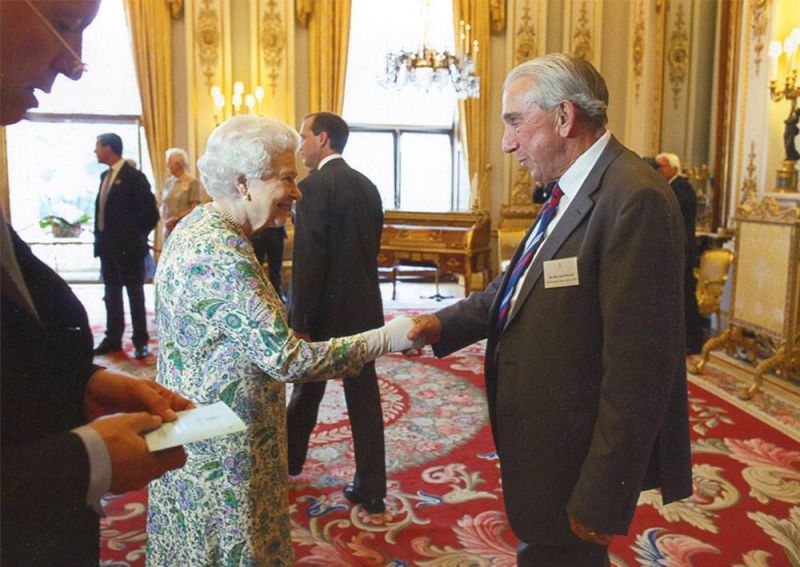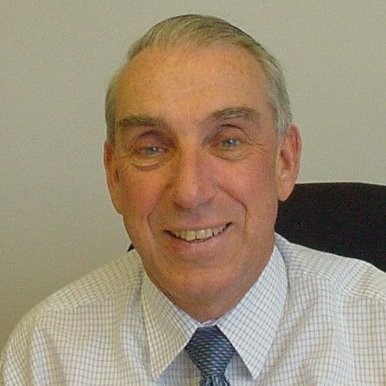Still Saving Nature at 83

Some of the most treasured members of the BirdLife family are our active and generous supporters. In some cases their perspectives on saving nature are informed by long lives well lived. We are especially tickled to share a wonderful journey looking back on life’s lessons with a commitment to engagement we can only hope inspires others.
In his own words, this is the story of Ricky Donner, age 83.
I was born in Ruskin College, Oxford, which was then a maternity home that had been converted for the war. It was 1939.
My parents were Austrian refugees who had been evacuated from London after the blitz. There were no jobs and my father had poor eye sight. We were sent north to start a business to employ women in an area of mass unemployment. I was brought up in a small council house on an unpaved street.
There was something about that street. Everyone who lived there made a success of life. We grew our own fruit and vegetables and kept chickens. We all bartered with each other. There were no food banks and no government support systems. Somehow we all survived, but not only that, we enjoyed life.
When I was three I got interested in nature. I walked the local fields on my own with jam jars and a home made butterfly net. Miss Webster, at the end of the street, identified my catches for me and showed me what to feed them.
My only weapon was a penny. I put it on the railway track and, if it did not vibrate, it was safe to cross.
I earned my pocket money by climbing the wall of our local asylum for an old lady. I collected Turkey Acorns which she made into coffee. I became the richest kid on the street. I could afford a gob stopper twice a week. Other kids were given pocket money, but could only afford one.
At school, I was bullied as the other boys thought I was German. I had five years of Hell. The staff sat in their rest room and ignored me. Eventually, I learned to defend myself and to make friends.
I was on the science side and earned a scholarship from Shell to Imperial College in London. But my Dad, who had ignored me till then, wanted me to train to go into his growing garment business. I was not keen.
He was crafty. He sent me to a summer job to Sweden in a garment factory which had very advanced systems. I agreed to go. With Sweden’s reputation for “free sex”, what red blooded young man would refuse a summer there. But I should clarify that the stories were somewhat over stated.
I enjoyed working on new engineering projects and it dawned on me that you can find your area of interest in any company if you look hard enough.
I also met two young Americans working, like me, but at Penta who made the engines for Volvo. They were going home and on to Harvard Business School. I determined to do the same.
I would go to Leeds to learn textiles and economics and then to Harvard. It never occurred to me that I might not be accepted at either.
Back home, I called the admissions department at Leeds and asked for an interview. I was too late they said. I would have to wait a year. Undeterred, I asked for an immediate interview to see if it was right for us both. This was a new idea. Professor Speakman, the great man himself, interviewed me. At the end, he said would I really like to start the following week. He warned me that a double degree would be hard work and that I had better not let him down. I spent three glorious years there and did well.
Then I applied to Harvard. I was interviewed by the whole board of Unilever as Harvard did not have a base in the UK. I was asked just one question which was what did I know about business. I talked for an hour uninterrupted. I had absorbed more than I realised from family talk about business over dinner at home.
I sweated for weeks waiting for my answer. I got an offer from MIT, then one from Columbia. I held back and prayed. On the last day I got my Harvard place. Phew!!
I had never worked so hard ever. 85 hours a week mainly in small teams. All the case method. No right or wrong. Just move on to the next case.
I met some great friends. Some became Senators, some started big businesses, some became CEOs of large companies. I went home to learn the family business and eventually run it.
I started buying and selling all over the world. I built a license business in Japan. I exported all over Africa and the Middle East. I sold in Europe and North America. I set up supply chains in China and Indonesia and Bangladesh.
I even set up a big vertical garment business in Iran financed by the Bank for International Settlements.
My real life interest , however, was wildlife. I joined the board of the Yorkshire Wildlife Trust (YWT) and the University of Leeds. At YWT we took on some major legal projects, both in the House of Lords and in the European Parliament. My mentor was Stephen Warburton, a quiet and self deprecating man with a brilliant knowledge of all ecology and of the law in the UK and Europe.
I was helped a lot by the fact that I spoke fluent German and French and a little Italian and Spanish. I also had spent time in many countries and understood what made them unique.
I can fit into most cultures.
In what was left of my spare time, I was taught by experts about, in particular, birds, wild flowers and butterflies. I can identify almost all European species of all three. But I also learned about the threats they face.
When I semi retired from my company, in 2009 at the age of 70, I started travelling round the world birding and adventuring. I have been to the Arctic and Antarctica and to many places on all five continents. I go to India a lot because I still share the running of our joint venture there.
My bird list is about 3300. I am still not sure about some splits and merges.
I was a late convert to believing that we were the main cause of the carbon crisis. I investigated sun spots, volcanic activity and much more.
Steph Hilborne, who was the Director of The Wildlife Trusts, will tell you that her greatest success was converting me to understanding the horrible damage we are inflicting on our planet.
Now at 83, I am lucky to be very fit and mentally still sharp. I am engaging on a project to work with the world’s environmental organisations to clean up the damage. There are so many aspects of our history that caused multiple extinctions. I can not be an expert in them all. But I read widely, test my findings in long discussions and start by investing my money in new technologies which can, one day, change the world. Some make me money. Some fail. But I make enough to live well and to go on spending where I think I can give support.
If I add up all my time spent earning and spending, researching and lobbying and of course travelling and learning, I never stop learning and I still put in 60 to 70 hours a week.
I am often asked why, at 83, do I bother. Why not let younger people take the strain?
My answer is simple. I have learned so much in my life that it would be criminal to waste it. I also teach and lecture from time to time. I do not want my experiences to die with me.
But I reckon that, barring accidents I have another 17 years to give!
By the way, I am booked to go into space next year with Virgin Galactic.

